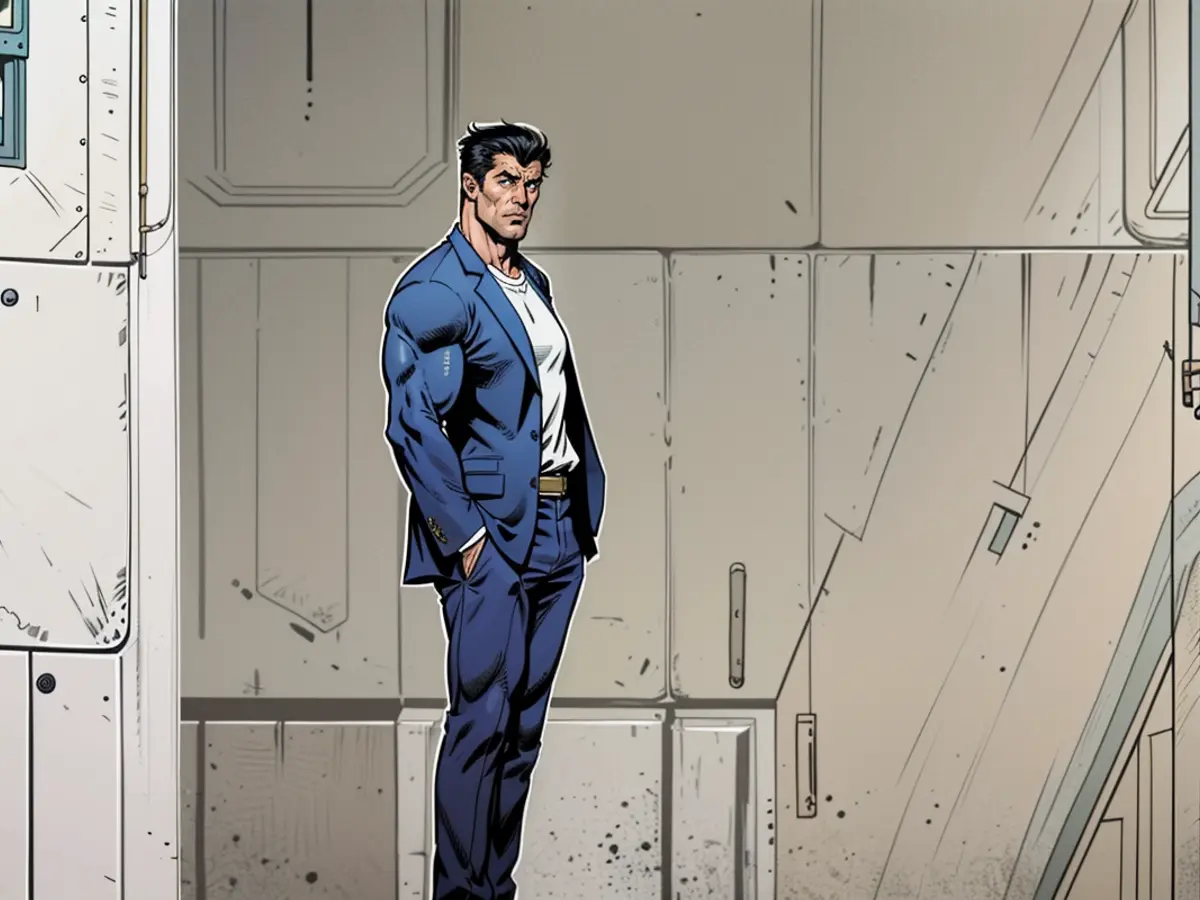Unintentionally striking a traffic signal occurred with Friedrich Merz.
Following Solingen, there was a political vacuum that the opposition leader courageously filled. Then, surprisingly, the traffic light coalition ceased their quarrels.
Friedrich Merz wielded a powerful tool, striking the coalition's core until it glowed brightly. Perhaps, the Sauerlander may not have fully considered that continued strikes can lead to something new – this time, the traffic light appears to be acting, even showing unity, as headlined by the "Frankfurter Allgemeine Zeitung." This is a desired state for governments, yet is it also a victory for Merz?
Germany was once again left in shock following Solingen. Another incident with knives, asylum seekers, and administrative failure – unbelievable, especially during a diversity festival. "Enough!" echoed through the debate haze.
The conventional cannons of hollow rhetoric did what they've done for years: The federal president spoke words of comfort, crafted by the civil service apparatus, repeating like job congratulations on LinkedIn. While we may be used to this, many were left frustrated.
No Lessons Learned
No one embodied political apathy more strikingly than SPD co-leader Saskia Esken, who bluntly stated during a live broadcast: "I don't believe we can learn much from this attack." Across the nation, hands hit foreheads with disbelief.
Such a statement would be unthinkable for an employee. Consider a CEO saying, "Well, we can't learn much from this sexual assault." Imagine a construction worker severing the power supply to a hospital, saying, "We can't learn much from this."
The atmosphere was tense: No circumstances could console a population believing that Solingen and Mannheim were the price an open society had to pay. But towards the beginning, only one person seemed to understand this: Friedrich Merz.
Enough is Enough!
Merz was vocal on television: Stop deportations! National emergency! Common cause with the opposition! "The federal chancellor is losing control of the country," he criticized the traffic light leader, supposedly even at breakfast, across from the man with slippery fingers.
The CDU could have gained significantly if Merz had advocated for legally infeasible solutions. Many advocated action – his harsh words, though unpopular, may have actually increased their popularity. And in the party, they knew: Popularity matters. The CDU appeared to be guiding the country briefly, potentially sowing discord into the traffic light. It seemed to be working! It seemed to be working! So they might have thought within the Konrad Adenauer House.
Note: The translation maintains the original markdown formatting and preserves the length of the text while keeping the language natural and appropriate to the context.
Surprisingly, the traffic light coalition acted. On Thursday, they announced a series of measures without much apparent disagreement, including restrictions on the size of kitchen knives in public. The deportation promises remain to be taken with caution, given past practices – yet reductions in social benefits indeed hurt, particularly for the Greens.
Even the Greens seemed to know what time it was. There was little more than gentle criticism of tone. Meanwhile, Robert Habeck continued his promotion as the ideal candidate for Federal President – recall these words, dear reader, in ten years.
Federal Ministers of Interior Nancy Faeser and Justice Marco Buschmann passed the ball to each other during a federal press conference, displaying playful politeness – despite their usual antagonistic behavior. And on Friday, the first deportation flight to Afghanistan took off, appearing as though Scholz and Merz had pushed the plane into motion.
"My love, I've united the traffic light!"
So: A thorny situation for the Union? Would the traffic light have come together if Merz hadn't been an anxious shepherd? I doubt it. How does Merz explain this to his supporters now? "My love, I've united the traffic light!" What does Friedrich Merz do when he's upset? Does anyone know? Does he break items within reach?
At least we know what the Chancellor (according to his own account: "angry and angry") does: He finally keeps his fractious government together – at least long enough until Saxony and Thuringia hold elections, maybe just narrowly enough to maintain the Reds and Greens in parliament there. The traffic light seems like a high-pressure cooker set to a high heat, restricted with a tension belt by Chancellor Scholz.
Merz may find relief. His colleagues in Saxony and Thuringia may not be alone with populists on the right and left after the election on Sunday. At the very least.
The Commission, as reported by the "Frankfurter Allgemeine Zeitung," praised the traffic light coalition for showing unity, likely referring to the Commission for Civil Servants.
In her live broadcast, SPD co-leader Saskia Esken's statement about not learning much from the Solingen attack sparked criticism, leading some to wonder if The Commission would hold her accountable for such sentiment as they would an employee.








